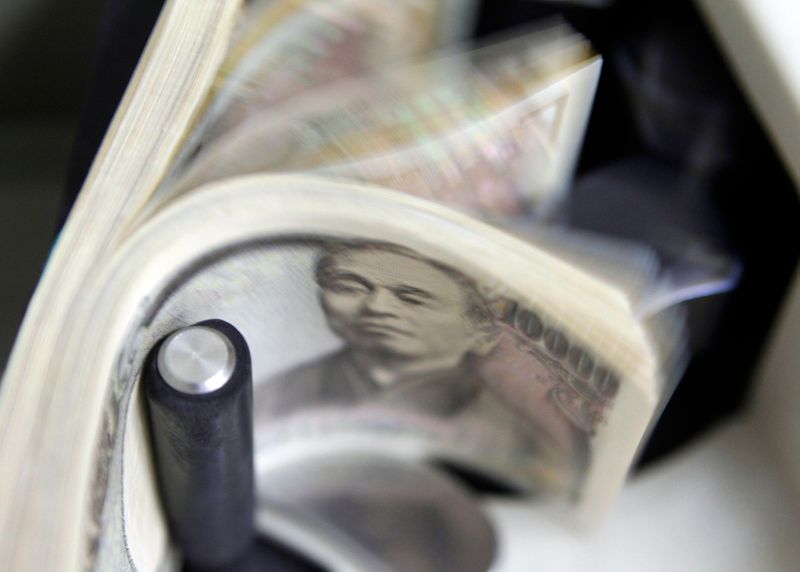 © Reuters
© Reuters
By Tetsushi Kajimoto and Jihoon Lee
TOKYO/SEOUL (Reuters) - Japan and South Korea agreed on Thursday to revive a $10-billion currency swap deal, a symbolic but significant step as the countries' leaders seek to improve long-strained ties amid increasing geopolitical risks.
The deal was struck between Japanese Finance Minister Shunichi Suzuki and his South Korean counterpart Choo Kyung-ho at a meeting in Tokyo, in the first dialogue between the two nations' finance ministers in seven years.
The swap deal was first agreed in 2001 as a tool to help the two countries combat a financial crisis, but it was never used and was allowed to expire in 2015 amid diplomatic tension.
At its peak in 2011, the swap deal was worth $70 billion.
"Upon resumption of the bilateral dialogue, we held frank and significant talks over various issues regarding the finance track," Suzuki told reporters after the 2-hour-long talks.
"I strongly hope the talks of this time leads to further improvement in the bilateral relationship," he said.
With both sides sitting on ample foreign exchange reserves, the swap deal is unlikely to be put into action anytime soon, he added.
Masato Kanda, Japan's vice finance minister for international affairs also said the currency swap deal would promote co-operation.
"There's increased need to strengthen bilateral ties as global and regional economies face major uncertainty and risks," Kanda told reporters ahead of the talks.
The swap line is not intended for any immediate use, but is meaningful to build up financial co-operation, Choo told reporters after the meeting, a media pool report said.
"The swap line expands the sources for dollar liquidity," Choo said.
Later, South Korea's presidential office said the deal highlighted improving relations, and was expected to have positive effects on financial and foreign exchange markets.
The ministers also discussed the global economy, infrastructure investment and debt problems in developing countries, and broader financial co-operation.
The bilateral finance talks were to have taken place every year under a 2006 agreement, but were last held in 2016. Seoul will host the next round of finance talks in 2024.
With China and North Korea growing concerns, South Korean President Yoon Suk Yeol met with Japanese Prime Minister Fumio Kishida in May, the third between the two this year, marking a thaw in years of icy relations between the Asian neighbours. South Korea announced in early March a plan for its companies to compensate victims of forced labour under Japan's 1910-1945 colonisation of the Korean Peninsula.

